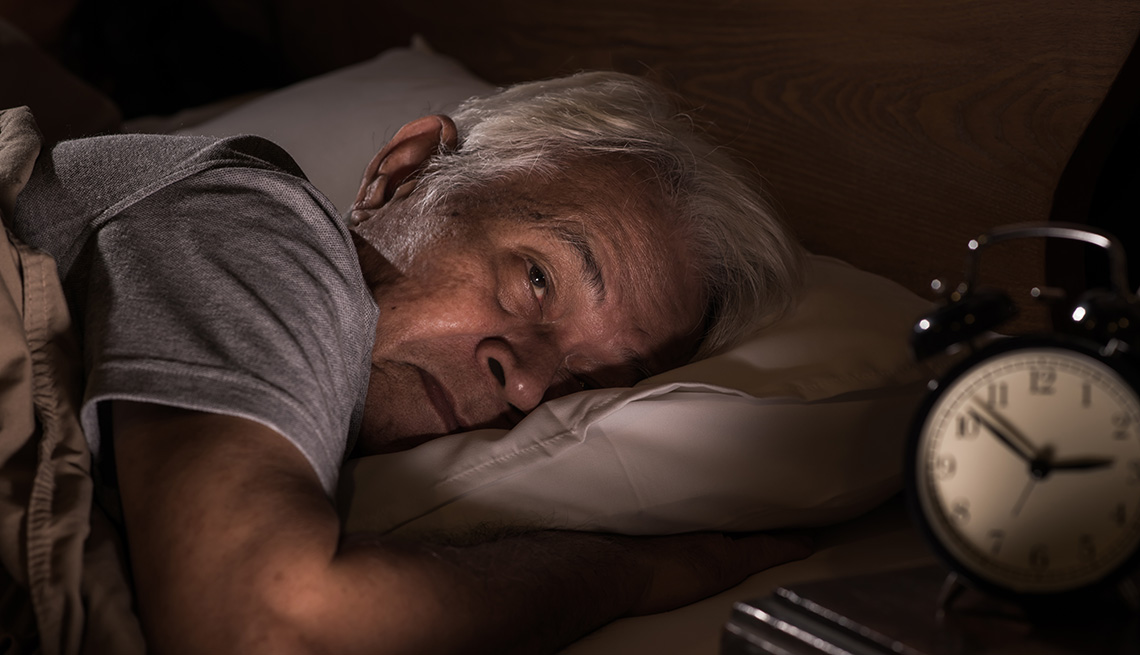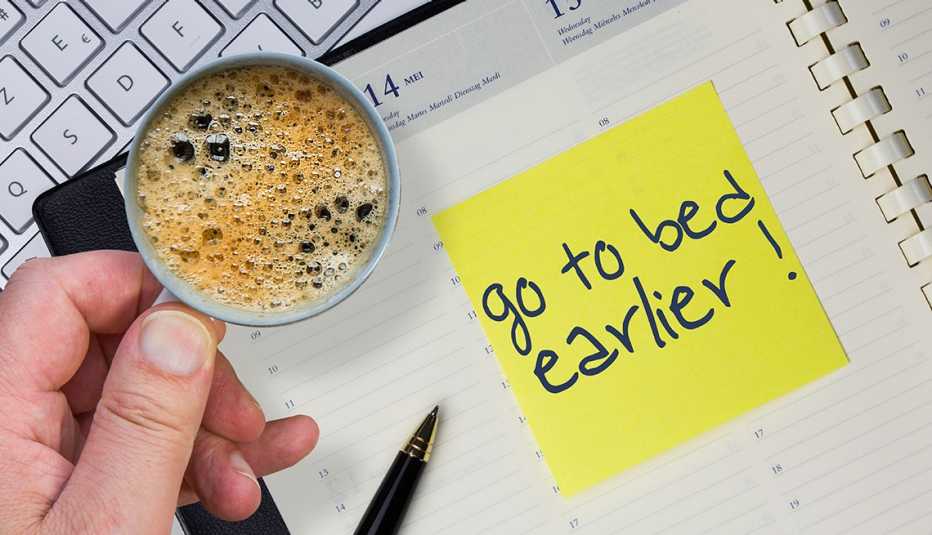Staying Fit
If you've noticed that your sleep has been a little off these last six months, you're not alone. A number of surveys, polls and studies reveal a similar trend: The pandemic is rattling sleep schedules.
Some are finding it hard to sleep at all; others are dozing throughout the day and night. All the while, the health of millions of Americans is suffering. After all, sleep deficiency leaves you more than a little moody. It can increase risk for a number of chronic health problems — including diabetes, obesity, high blood pressure, kidney disease, heart disease and depression. Sleep is also a critical part of immune function. If you miss out on what your body needs, your risk for infection could increase, according to the Centers for Disease Control and Prevention (CDC).


AARP Membership— $12 for your first year when you sign up for Automatic Renewal
Get instant access to members-only products and hundreds of discounts, a free second membership, and a subscription to AARP the Magazine.
So what's going on? And can it be fixed? AARP interviewed three sleep experts to pinpoint the factors at play when it comes to pandemic-related sleep issues — and the most effective ways to reclaim your rest.
1. Anxiety, stress and fear are fueling insomnia
Elevated stress brought on by job loss, health concerns and fear of the unknown is one reason why people are reporting more sleep problems. In July, 53 percent of American adults said that stress and worry related to the coronavirus had a negative impact on their mental health, according to a Kaiser Family Foundation report. What's more, 36 percent reported difficulty sleeping.
"The mother of insomnia is stress,” says Michael Perlis, director of the behavioral sleep medicine program and associate professor in the department of psychiatry at the University of Pennsylvania's Perelman School of Medicine.
Chronic insomnia, a sleep disorder characterized by an inability to initiate or maintain sleep three or more times per week, typically affects 10 to 14 percent of adults. But sleep specialists say they've seen an uptick in the number of patients who are struggling to get shuteye — and that trend will likely continue as millions of Americans remain out of work and case counts for coronavirus infections continue to climb.
"At the end of the day, we're likely to see a lot more insomnia because there are a lot of people whose quality of life and way of life is fundamentally threatened,” Perlis adds.
Quick Tips for Better Sleep
- Keep a consistent sleep schedule: Go to bed at the same time every night and get up at the same time each morning.
- Keep electronic devices out of the bedroom.
- Get plenty of physical activity.
- Avoid large meals, caffeine and alcohol before bedtime.
- Keep your bedroom quiet, dark and at a comfortable temperature.
Source: CDC
How does stress interfere with sleep? The body and mind need to be in “slower states” to successfully shift from awake to relaxed, explains Lisa Medalie, a behavioral sleep medicine specialist at the University of Chicago and founder of the sleep app Dr. Lullaby. But elevated stress makes the sleep transition “more challenging” because it “ramps us up and gets our heart beating faster.” And if this persists, a person becomes vulnerable to insomnia.
Solution: Tackle the stress and the sleep problems
It's important to address stress and anxiety, if you have it. Take care of your emotional health by taking care of your body: Eat well-balanced meals and avoid excessive alcohol use. It's also critical to find a balance with the news these days, which can trigger pandemic-related stress. The CDC recommends staying informed, but avoiding too much exposure to the news, and making the time to unwind and engage in activities you enjoy. And don't forget to share your concerns with family and friends — even if you can't do so in person.



































































